Road Accidents in Tanzania. WHO Estimates up to 10,000 Victims Annually
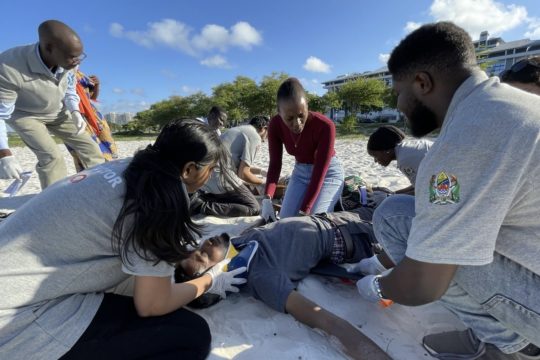
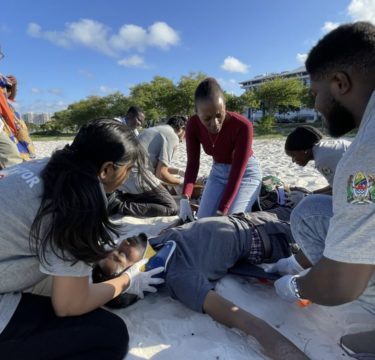
On the road connecting Tanzania with Zambia, on a steep section running through the Iwambi hill, another accident occurred at this location. At least 28 people died, and eight were injured. One of the vehicles fell into the river.
“The accident happened in difficult terrain. The driver of a truck loaded with grain lost control of the vehicle and hit several other cars, knocking one of them into the Mbalizi river flowing below,” said the local police chief Benjamin Kuzaga during a press conference held on Sunday at the accident site.
Unfortunately, such accidents are very common in Tanzania. According to official government data, there were over 1,300 fatalities in 2023. However, the World Health Organization (WHO) estimates that the number of victims could be as high as 10,000.
Worldwide, more than 3,500 people die on roads every day, amounting to nearly 1.3 million preventable deaths annually. Road accidents remain the leading “killer” of children and youth globally. It is estimated that in the next decade, they will cause an additional 13 million deaths and 500 million injuries. Countries with low and middle incomes, such as Tanzania, are particularly vulnerable. The Polish Center for International Aid (PCPM) aims to help address this problem.
Emergency Medicine
The most important actions to reduce road accident mortality are improving road safety, efficient law enforcement, and emergency medicine. In accidents, pre-hospital care is crucial for saving the lives of the injured.
Since 2021, PCPM has focused on this area. PCPM has successfully trained 2,400 doctors and nurses in emergency medicine according to the rigorous standards of the American Heart Association. This comprehensive program has prepared dozens of Tanzanian instructors. Additionally, 150 emergency service personnel, including firefighters, scouts, and drivers, have undergone first aid training and have been equipped with modern medical kits to enhance their immediate response capabilities.
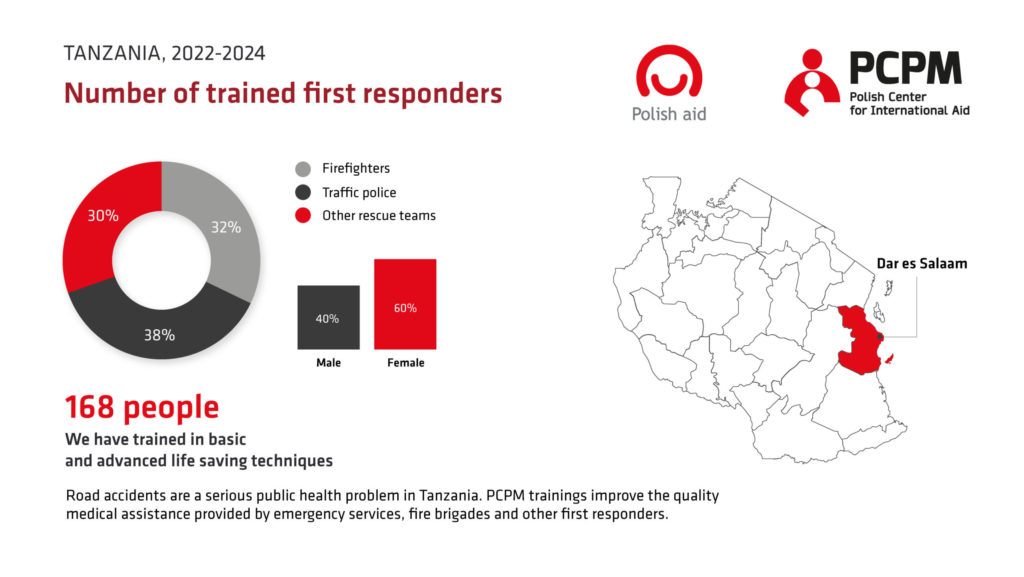
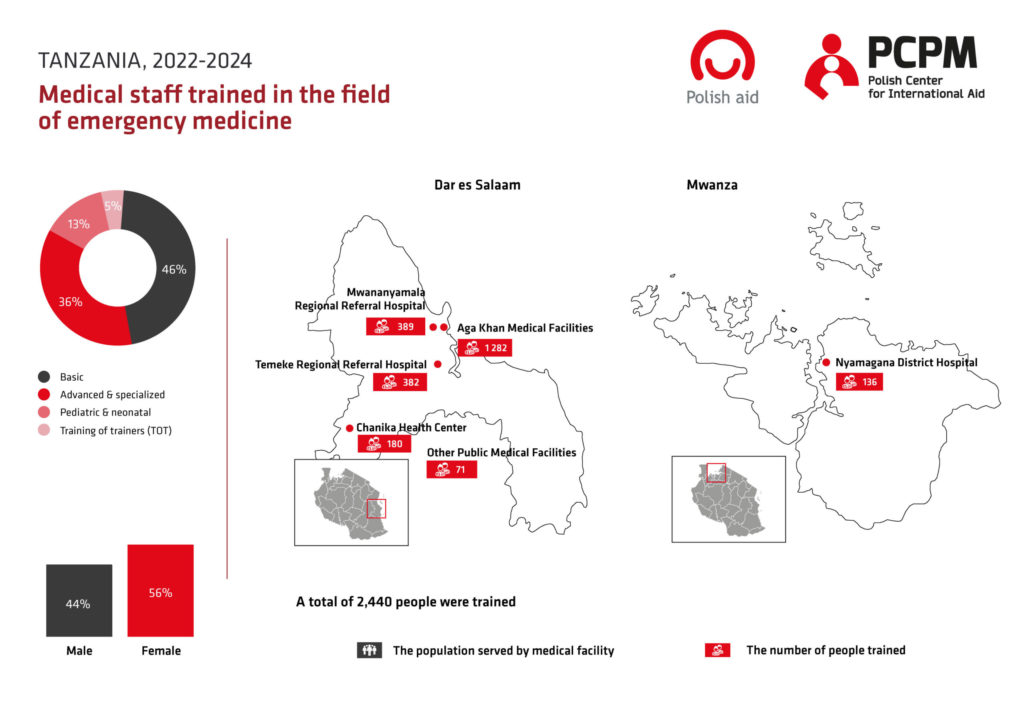
Polish-Tanzanian Training Center
PCPM Foundation built and equipped the Tanzanian-Polish Emergency Medicine Training Center in Dar es Salaam, the largest city in the country with a population exceeding 6 million. Besides training, PCPM equips Tanzanian hospitals and clinics with medical equipment. As part of the project, seven medical facilities in Tanzania received, among other things, mannequins, choking management vests, trainers for intraosseous access and bleeding control. Tanzanian hospitals were also supplied with diagnostic equipment such as ultrasound sets, ECG machines, cardiomonitors, intravenous infusion devices, oxygen therapy apparatus, as well as resuscitation and intubation equipment.
“Polish instructors we cooperate with teach Tanzanians first aid, cardiopulmonary resuscitation for children and adults, AED defibrillator operation, trauma patient management, and the use of ultrasound in emergencies,” says Adam Kukliński.
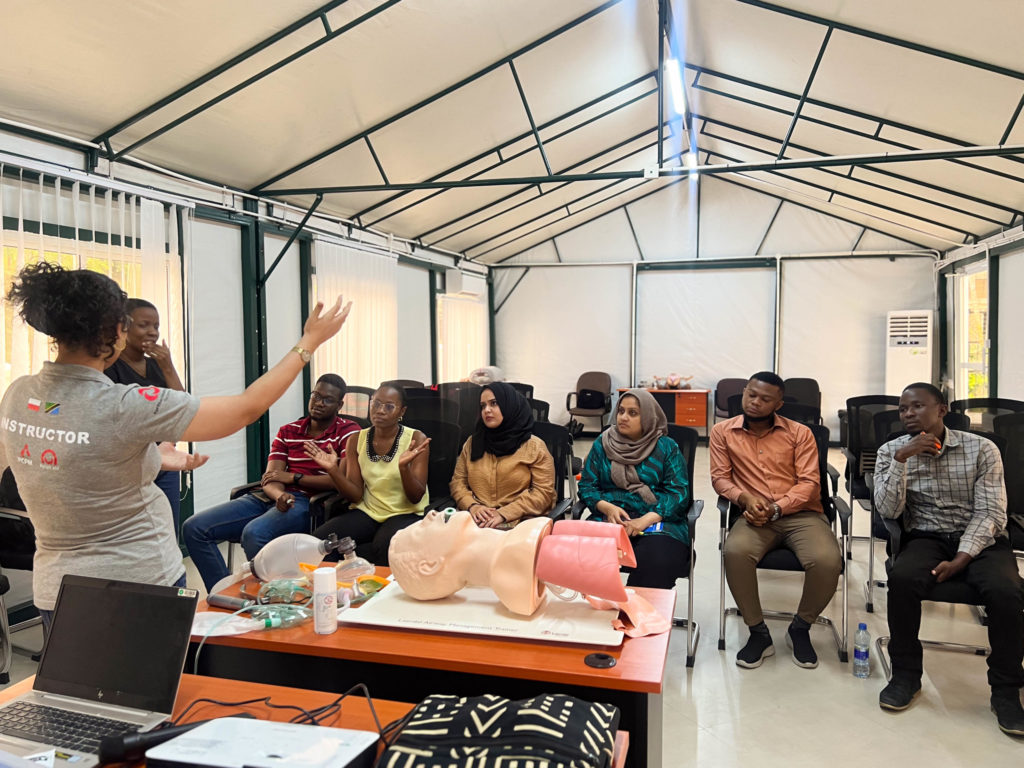
One beneficiary of the training is the emergency department of Chanika Hospital on the outskirts of Dar es Salaam. Its head, Rose Mtangi, assesses that thanks to help from Poland, local doctors are able to provide care according to European standards.
“I first came here in April 2024 to conduct ultrasound training at a care point for local doctors, and now we have come here with a group of three doctors from Poland to actually work with the team, work with patients in various hospitals. My experience so far is wonderful because we have the opportunity to see both municipal hospitals and the Aga Khan hospital, which allows us to compare standards, resource availability, and assess the profile of patients who usually come to the emergency room,” says Piotr Grabski, a doctor training medics in Tanzania.
A New Profession
There is no profession of “paramedic” in Tanzania. The first graduates of emergency medicine-related courses completed their studies only 10 years ago. PCPM projects enable paramedics to gain new competencies, significantly improving the quality and availability of first and specialized medical aid in the country. Not only paramedics but also instructors who will independently train future medical personnel are being trained.
“The development of emergency medicine is important in a country like Tanzania to attract foreign investors. If a state or company from China, Japan, or any other country wants to invest in a place like Tanzania and bring their employees here, one of the basic questions will be what will happen to them in case of an emergency health situation. Will these people be able to receive adequate medical assistance?” says Wojtek Wilk, president of PCPM Foundation.
The project was implemented with funds from the Polish Ministry of Foreign Affairs under the Poland Aid program. Since early 2025, PCPM Foundation has been conducting training cycles with its own funds.